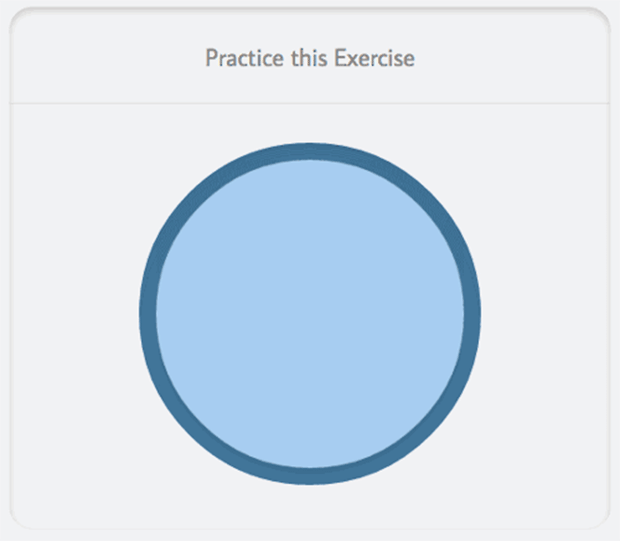The holidays can be stressful, even in years without a global pandemic and massive political transition. With shorter days and less average sunlight, colder weather, and the pressures of holiday purchases in a financially trying time, the 2020 holiday season has the opportunity to deliver both hardship and fulfillment in ways we at Integrity Counseling have not seen before.
These common-sense approaches to trying times can help you and your loved ones survive and thrive in this most uncommon of holiday seasons.
Following are our 6 Tips for Holiday Health. We would love to hear if you have any additional tips — please reach out to us any time at admin@counselingintegrity.com or call us at (919) 379-5788.
STEP 1:
EMBRACE GRATITUDE
What we focus on often influences what we receive in our lives. If we embrace our fear and anger in troubling times, we will fear and have anger toward times to come — regardless of our hopes for positive change.
Remember that whatever you have gone through in 2020 or at any time in your life is squarely in the past. Though you may feel depleted or diminished by trying times, embrace what you are grateful for. Make time to acknowledge what you have done to make it to this very moment, with the knowledge that this awareness and gratitude will fuel the next moment, and the next and the next. This acknowledgement of gratitude can offset fear and anger, and can be very helpful as a reminder of what’s most important to you. Gratitude does not have to be earned; it can be accessed at any point of any day.
For a meaningful boost (and the reason for the season), let those who have helped you or whom you cherish in your life know that they are important to you. Pass your gratitude forward to the people in your life who are important to you. Shorten the distance through a phone call, handwritten card, email, or even just a text message — with COVID-19 still making in-person gatherings a risky proposition, use any method necessary to share your gratitude with those for whom you are most grateful.
STEP 2:
MAKE A LIST, CHECK IT TWICE
Having difficulty figuring out what to be grateful for? Make a list! Writing down the aspects of your life for which you are most grateful gets these powerful feelings of gratitude out of your mind and heart and outside of yourself: literally, on paper.
Take a quiet moment for yourself with a pen and piece of paper, and write out even three things that you are thankful for about yourself. This simple practice can help realign your priorities by establishing a direct mind-body connection with the tangible and intangible, even in the darkest of days. Then, check it again. Add more items of thankfulness for yourself and what you’ve accomplished. This is just for you, so let yourself shine a light on the positives in your life and embrace that gratitude.
STEP 3:
REMEMBER TO BREATHE
Sometimes life can be so overwhelming, even in the best of times, that we forget our ability to put intention into that most basic of human functions, breathing. We do it unconsciously. Our body handles it even when we aren’t aware of it. Try some focused breathing and see the difference.
FOUR-SQUARE BREATHING

When we focus our intention on our own breathing, we take this simple and necessary biological process and infuse it with self-regulation (an integral part of both Cognitive- and Dialectical Behavior Therapies). Deep, steady techniques such as four-square and 4-7-8 breathing are not only calming but reoxygenate the blood, which delivers more oxygen to the brain and nervous system to aid in concentration, focus, and calm. Take a moment to try these techniques next time you feel overwhelmed or stressed — or anytime you wish. The best part: they are free to learn and are accessible at any moment you need them!
4-7-8 BREATHING

STEP 4:
MAKE SURE TO LAUGH
As the Mayo Clinic itself reports, a good laugh has great short-term effects. When you start to laugh, it doesn’t just lighten your load mentally, it actually induces physical changes in your body. Laughter can:
- Stimulate many organs. Laughter enhances your intake of oxygen-rich air, stimulates your heart, lungs and muscles, and increases the endorphins that are released by your brain.
- Activate and relieve your stress response. A rollicking laugh fires up and then cools down your stress response, and it can increase and then decrease your heart rate and blood pressure. The result? A good, relaxed feeling.
- Soothe tension. Laughter can also stimulate circulation and aid muscle relaxation, both of which can help reduce some of the physical symptoms of stress.
Not only do those short-term benefits of laughter make tough times better (and every time in between), longer-term effects may:
- Improve your immune system. Negative thoughts manifest into chemical reactions that can affect your body by bringing more stress into your system and decreasing your immunity. By contrast, positive thoughts can actually release neuropeptides that help fight stress and potentially more-serious illnesses.
- Relieve pain. Laughter may ease pain by causing the body to produce its own natural painkillers.
- Increase personal satisfaction. Laughter can also make it easier to cope with difficult situations. It also helps you connect with other people.
- Improve your mood. Many people experience depression, sometimes due to chronic illnesses. Laughter can help lessen your depression and anxiety and may make you feel happier.
STEP 5:
MODERATE BEHAVIORS
All good things in moderation, from purchasing gifts to that fancy egg nog, help maintain a balance between the varying aspects of the holiday day-today. Too much of anything, whether food, drink, or watching that 49th Law & Order, can feel good at the time. But overconsumption can speak to a few things which these other steps can help with.
The pressure we put on ourselves and methods of overconsumption we turn to release temporary impulses of satisfaction that we may have difficulty with after the fact. For instance, putting purchases on credit cards for a long list of recipients feels thoughtful yet ultimately the bill will come around — make something for someone instead. Eating that whole pie may be a personal point of pride, but sharing a slice with your family or socially-distant friends helps everyone enjoy it. And in the case of that fancy egg nog, set limits for yourself.
Add walks into your routine, be sure to stretch, practice hygiene and vary your behaviors. Get some sunshine on your face for five minutes when you can. Again, all in moderation. It’s a busy and hectic time, but it’s never too busy or hectic to look after yourself and vary the many behavioral choices that we have at our disposal every day.
STEP 6:
REST
Possibly the most important step to seasonal sanity is getting good rest. The pressures of being a good parent or partner sometimes take over and we leave our own needs out of the equation. And nothing is better for every cell in your body than a good night’s sleep, a moment of focused breathing, or even 2 minutes for a glass of water.
The holiday season offers a moment for us to remember that we are all in this together, and if we take better care of ourselves we take better care of our worlds, both inner and outer. Throughout the end of 2020 — and into 2021 — remember that you are just another human on this planet with everything to offer, especially to yourself. Hydration, adequate sleep, breathing, laughter, gratitude, and focus on being gentle with yourself will not only help you “get through” the holidays, but provide awareness of these needs every other day of the year.
If you need help at any time, please reach out to loved ones for support. And if you need us at Integrity Counseling, we are always here for you at (919) 379-5788.
Happy (and healthy) Holidays!

